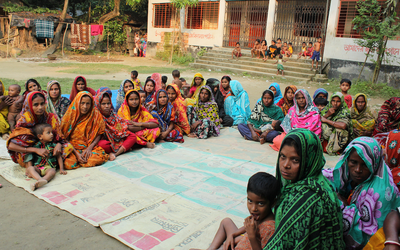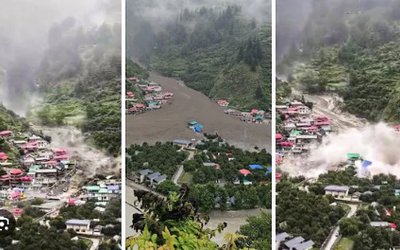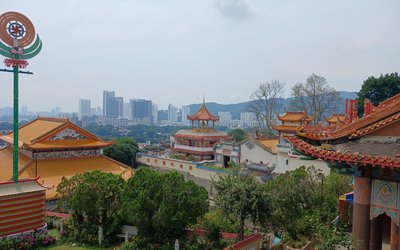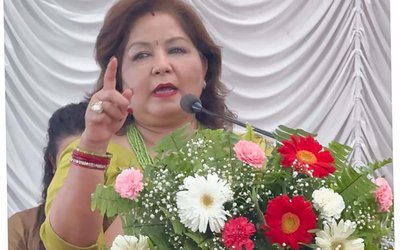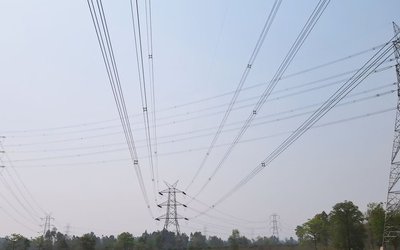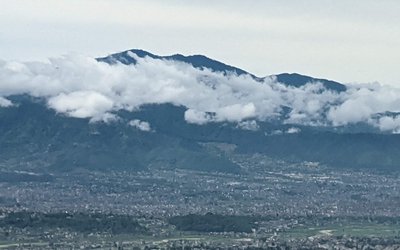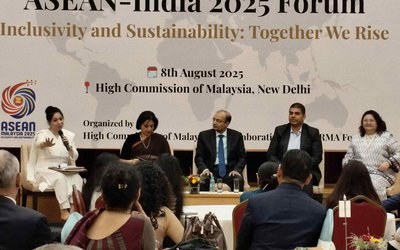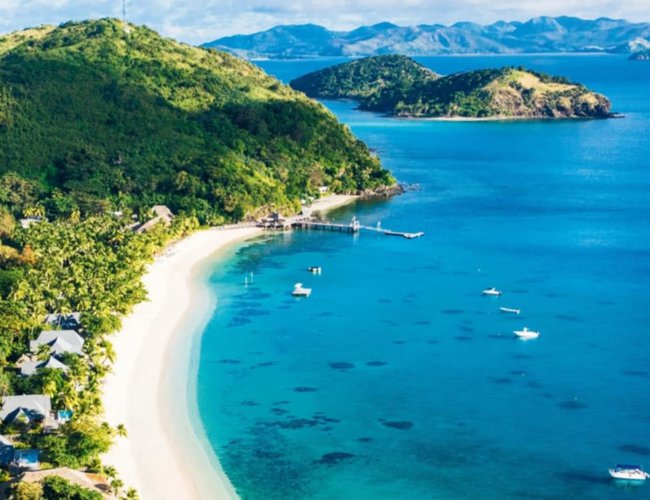
Reviving Traditional Island Resource Management
The Anthropology of natural resource management (NRM) in the Pacific and the Caribbean underscores the complex relationship among community structures, cultural practices, and environmental stewardship. In both regions, traditional knowledge systems form the backbone of NRM. In Samoa, “fa’a Samoa”—“the Samoan way”—anchors natural resource management in village councils (fono) and chiefly authority, emphasizing consensus, respect, and collective duty. In Niue, “tapu” systems impose sacred or seasonal restrictions to protect land and sea, while in Tokelau, the “inati” tradition ensures equitable, sustainable sharing of resources through communal distribution practices. In French Polynesia and the Cook Islands, “rahui” enforces temporary bans on resource use, allowing ecosystems to recover and thrive. In Fiji, “vanua” embodies the deep interconnection between land, people, and culture, shaping stewardship rooted in identity and collective responsibility. In Fiji and Papua New Guinea, traditional systems such as “qoliqoli”—customary fishing grounds managed by clans—safeguard marine biodiversity through locally governed access and sustainable practices. In Tonga and Samoa, “fanua” binds land, life, and ancestry, forming the cultural bedrock for sustainable farming, land use, and resource inheritance. In Vanuatu and parts of the Solomon Islands, “kastom”—a system of traditional laws and taboos—governs access to land and marine resources, ensuring their protection through customary leadership and sustainable practices. These are just a few examples.
Caribbean communities, influenced by indigenous, African, and colonial legacies, utilize communal approaches to manage land, forests, and marine resources, with social hierarchies, gender roles, and kinship networks determining access to and control over these resources. In Cuba and the Dominican Republic, “usufruct” grants the right to use state or private land, fostering sustainable smallholder and cooperative farming without private ownership. In the Dominican Republic, Puerto Rico, and parts of the Lesser Antilles, “conucos”—traditional agroforestry plots—use intercropping to boost soil fertility, biodiversity, and long-term productivity. In Haiti, “lakou” integrates communal living and farming with shared land use and spiritual beliefs, ensuring collective resource management. The “Kalinago” of Dominica, alongside other Caribbean Indigenous communities, uphold sustainable land stewardship, rotational farming, and sacred ecological zones to protect forests, watersheds, and agricultural resources while preserving cultural heritage. These traditional frameworks are key to community cohesion and cultural identity, supporting sustainable NRM. Traditional ecological knowledge, shaped by generations of Indigenous and local communities, enhances biodiversity conservation, climate resilience, and sustainable resource management.
Despite having strong traditional practices, the Pacific and the Caribbean both face rising threats from climate variability, frequent disasters, unregulated tourism, and economic pressures, all of which strain local NRM systems. In the Caribbean, colonial-era land tenure issues hinder fair resource use, while in the Pacific, global development agendas often clash with Indigenous governance, weakening local control. Coral reef loss in the Caribbean—there has been an 80% decline in stony coral cover over the last three decades as quoted by US Environmental Protection Agency (2025)—and tensions in the Pacific between conservation and extractive industries such as fishing and seabed mining, underscore the urgent need for NRM strategies that blend ecological sustainability with cultural and social resilience.
Losing Ground: How the Erosion of Social Traditions Threatens NRM
Erosion of traditional resource management systems: Traditional resource management systems across the Pacific such as “ruhui,” seasonal harvesting, clan-based tenure, and the “qoliqoli” coastal system are under increasing strain from modernization, migration, extractive industries, and climate change. Once grounded in intergenerational ecological knowledge and collective stewardship, these systems are being rapidly displaced by market-driven development and legal encroachment. In Fiji, for example, urban migration and the erosion of traditional knowledge are weakening the “qoliqoli” system, diminishing local control over marine resources. In Papua New Guinea, logging and mining on customary land are undermining communal tenure and the authority of elders. Vanuatu and the Solomon Islands face similar threats. There, unregulated tourism and the commodification of land have fueled disputes, weakened traditional leadership, and fragmented customary governance. In the Solomon Islands, growing cash incentives from logging activities have begun to overshadow long-standing forest stewardship practices, underscoring the importance of revitalizing and supporting traditional conservation approaches. Meanwhile, in the Caribbean, shifts such as Jamaica’s transition from community-managed fishing sanctuaries to commercial fisheries, and Grenada’s move from diverse spice farming to monocultures, present opportunities to reinvigorate ecological resilience and cultural heritage through sustainable and inclusive practices. Climate change intensifies these challenges. Rising sea levels, extreme weather events, and ecosystem degradation are forcing communities to modify or abandon long-standing practices. The cumulative effect is not just environmental loss but the erosion of cultural heritage, youth engagement, and collective decision-making, thereby undermining the very foundations of resilience, identity, and sustainable resource governance.
Socio-economic pressures and shifting values: Across the Pacific and the Caribbean, deepening poverty, urbanization, limited education, and rising consumerism are reshaping traditional ecological values and undermining long-standing sustainable practices. Market-driven pressures combined with climate vulnerability and migration are eroding subsistence livelihoods and disconnecting younger generations from traditional knowledge systems. In the Solomon Islands, for instance, commercial logging and industrial fishing do offer short-term economic benefits but disrupt rotational harvesting and taboo zones and youth disengagement has accelerated resource overexploitation. Similarly, in Kiribati and Tuvalu, the rise of remittance economies and climate stress has weakened artisanal fishing and farming traditions, eroding the resilience of customary subsistence systems. Education and migration, though both provide new opportunities, have also contributed to cultural fragmentation and the devaluation of indigenous ecological knowledge. In the Caribbean, these patterns are echoed in Saint Lucia’s shift from community-managed fisheries to unregulated tourism and commercial extraction, and, in Barbados the displacement of smallholder agriculture by real estate expansion. In Haiti, economic hardship has intensified charcoal production, accelerating deforestation and dismantling long-established agroforestry systems. Climate and disaster risks, coupled with socio-economic pressures, are driving communities toward unsustainable income strategies, eroding biodiversity and the cultural foundations of resilient, community-led resource governance.
Erosion of communal norms and the decline of collective stewardship: Across the Pacific and the Caribbean, communal norms that once sustained traditional resource governance are steadily unraveling under the pressures of privatization, market-driven development, and socio-economic change. In Pacific Island states like French Polynesia, Samoa, and New Caledonia, colonial land titling and commodification have weakened what was once chiefly authority- and clan-based decision-making, fueling land disputes and diluting consensus-based governance. Similar trends are evident in Fiji and Tonga, where tourism and remittance economies have fragmented the land of the iTaukei people management systems and reduced the influence of village councils. Urbanization in Vanuatu and the Solomon Islands draws some youth away from communal responsibilities, turning traditional spaces like the “nakamal” into symbolic relics while empowering external actors to bypass collective decision-making through individual land negotiations. In the Caribbean, centuries of dispossession and commodification continue to undermine ancestral governance systems. In Jamaica, Maroon communities face restricted access to sacred lands, while coastal gentrification has undermined long-standing livelihoods. Saint Lucia, Dominica, and Grenada are witnessing the erosion of artisanal traditions such as herbal medicine, fishing, and cooperative farming due to monoculture agriculture, unregulated tourism, and the pursuit of personal economic opportunity. Even in Dominica’s Kalinago communities, where communal tenure persists, youth disengagement and mounting economic pressures are weakening collective governance. These transformations are eroding social cohesion, knowledge transfer, and ecological resilience. As climate change displaces populations and intensifies resource competition, the breakdown of communal governance weakens ecosystems and disempowers communities. Restoring balance requires revitalizing customary institutions, protecting communal tenure, and engaging youth in adaptive environmental stewardship.
Marginalization of traditional knowledge in development agendas: While past development and policy agendas in the Pacific and Caribbean have sometimes overlooked traditional knowledge systems, there is increasing momentum toward approaches that empower local ownership and reinforce community cohesion. Top-down models, which, ironically, are often implemented in the name of climate resilience or resource management, frequently disregard indigenous practices and therefore result in regulatory resistance and diminished project success. In Vanuatu, efforts to harmonize conservation zones with sacred sites and customary tenure offer a valuable pathway to enhance both environmental protection and community support. In Papua New Guinea, integrating formal land titling with clan-based governance presents an opportunity to enhance land security while respecting and reinforcing traditional authority systems. In Samoa, adaptation efforts that integrate local resilience practices—like sacred tree designations and seasonal mobility—can significantly strengthen community ownership and the effectiveness of climate responses. This pattern is mirrored in the Caribbean, where standardized interventions often bypass traditional spatial and land-use knowledge. The Dominican Republic’s reforestation programs, for example, overlooked “conucos”—time-tested agroforestry systems—while Saint Vincent’s zoning regulations disregarded artisanal fishers’ deep spatial knowledge of coastal ecosystems. In Haiti, aligning watershed restoration initiatives with the “lakou” system can revitalize critical land and labor networks, reinforcing sustainable community practices. Climate change and disaster risks amplify these challenges, pushing for rapid solutions that often overlook context-specific practices. As formal systems are prioritized, traditional resource management is marginalized, highlighting the need for inclusive, co-created strategies that recognize customary governance, integrate local knowledge, and promote community-driven resilience.
Rethinking Policies to Safeguard Natural Resources
Current efforts to safeguard traditional practices in the Pacific and Caribbean focus on integrating customary systems with modern governance. In the Pacific, community-driven resource management in Fiji and Papua New Guinea is restoring systems such as “qoliqoli” and clan-based land tenure, thereby promoting the intergenerational transfer of knowledge. Vanuatu and the Solomon Islands are working to legally recognize customary land custodianship, ensuring traditional practices coexist with statutory rights. In the Caribbean, initiatives in Dominica and Saint Vincent aim to revive rotational farming and traditional fishing, combining community-led conservation with sustainable tourism and agroforestry. These efforts merge traditional ecological knowledge with modern science, enhancing both environmental and cultural resilience. In the Pacific, policies in Fiji, Samoa, and Vanuatu recognize customary land tenure and integrate traditional governance into national frameworks. In the Caribbean, Dominica’s Kalinago land tenure and Saint Vincent’s inclusion of traditional fishing in coastal management protect indigenous rights and knowledge. UNDP has helped protect traditional resource management in the Pacific and Caribbean by integrating indigenous knowledge into climate actions. In Fiji and Solomon Islands, systems like “qoliqoli” and customary marine tenure have guided coastal management, while in Jamaica and Saint Lucia, traditional farming and watershed practices have supported resilient agriculture and cultural identity. These initiatives legally reinforce traditional practices, ensuring their preservation despite the pressures of modernization and development.
Across the Pacific and the Caribbean, current initiatives aim to reduce socio-economic pressures and shift values by reintegrating traditional practices with modern economic strategies. In the Solomon Islands, efforts to promote sustainable logging and fishing have reintroduced taboo zones and rotational harvesting, protecting traditional knowledge as they do so. In Kiribati and Tuvalu, projects are revitalizing subsistence skills like artisanal fishing and farming while integrating climate adaptation. In the Caribbean, community-led initiatives in Saint Lucia and Barbados balance tourism and real estate development with sustainability, while Haiti fosters alternative livelihoods which reduce deforestation and preserve agroforestry traditions. These initiatives prioritize long-term sustainability over short-term economic gains, thereby fostering cultural pride and resilience while also addressing poverty and environmental degradation. In the Caribbean, community-driven projects in Saint Lucia and Barbados strive to balance development with sustainability, and Haiti promotes alternative livelihoods to combat deforestation. UNDP has facilitated to reduce socio-economic pressures and shifted values in the Pacific and Caribbean by promoting sustainable livelihoods. In Samoa and Vanuatu, eco-tourism and community-based renewable energy have created green incomes, while in Barbados and Grenada, support for green jobs and youth entrepreneurship has encouraged sustainability over-extraction. These efforts safeguard cultural heritage, address socio-economic challenges, and foster long-term sustainability.
Current initiatives across the Pacific and the Caribbean focus on reviving traditional governance systems and integrating them into modern frameworks. In the Caribbean, Dominica’s Kalinago communities are protecting communal land tenure to combat economic pressures and youth disengagement and restore collective governance, ancestral livelihoods, and social cohesion. Jamaica is working toward safeguarding sacred lands and ancestral livelihoods from coastal gentrification. In the Pacific, Samoa, French Polynesia, and Fiji are striving to restore clan-based governance and land management systems, thereby addressing the fragmentation caused by colonial land titling and market-driven development. In Vanuatu and the Solomon Islands, communities are reasserting traditional spaces like the “nakamal” and reintroducing collective land-use customs to counter urbanization and youth disengagement. These initiatives highlight the need for the legal recognition of communal tenure, inclusive development, and the restoration of traditional stewardship in order to enhance social resilience and environmental sustainability. In the Pacific, efforts to restore clan-based land management in Samoa and Fiji and the revitalization of traditional spaces such as the “nakamal” in Vanuatu and the “kastom” in the Solomon Islands, aim to strengthen communal governance and norms. UNDP has fostered communal norms and stewardship in the Pacific and Caribbean by supporting community-led governance. In Tonga and Papua New Guinea, it has revived traditional structures for resource management, while in Dominica and Belize, local councils and cooperatives have led ecosystem restoration and disaster preparedness. All of these initiatives focus on revitalizing collective decision-making, addressing youth disengagement, and reinforcing social cohesion, thereby ensuring that traditional practices remain vital to community life.
The current initiatives in the Pacific and the Caribbean are working to integrate traditional knowledge into formal governance and development frameworks. In Vanuatu, efforts focus on resolving conflicts between conservation zones and sacred sites through community engagement. Papua New Guinea balances formal land titling with clan-based tenure to reduce disputes and support local governance. Samoa’s adaptation projects blend local strategies such as sacred trees and seasonal mobility with participatory risk assessments. In the Caribbean, the Dominican Republic and Saint Vincent integrate traditional agroforestry and artisanal fishing knowledge into development plans to mitigate resistance. In Haiti, the “lakou” system has been incorporated into watershed restoration efforts to strengthen traditional land and labor networks. These initiatives prioritize co-creation, the legal recognition of customary systems, and community participation, thereby ensuring that local knowledge informs development. In the Pacific, projects in Vanuatu and Papua New Guinea aim to integrate traditional knowledge and clan-based land tenure into national policies. Samoa’s adaptation strategies blend indigenous resilience with modern models to maintain cultural relevance. In the Caribbean, the Dominican Republic and Saint Vincent incorporate traditional practices such as agroforestry and artisanal fishing into national frameworks, a measure which ensures local knowledge shapes development policies. UNDP has facilitated to promote traditional knowledge in development across the Pacific and Caribbean by integrating indigenous practices into policies. In Kiribati and Tuvalu, traditional ecological knowledge has been included in adaptation strategies, while in Guyana and Suriname, Indigenous and Maroon knowledge has informed biodiversity and land management plans.
Charting the Future
To preserve both nature and culture while ensuring effective resource management in the Pacific and the Caribbean, we must champion initiatives that integrate indigenous knowledge, empower community-driven practices, and establish sustainable governance. Indigenous wisdom, spanning farming, fishing, and healing practices, holds the key to preserve the ecological and cultural fabric. By embedding this knowledge into school curricula and civil service training, we can institutionalize intergenerational learning, thereby fostering resilience and ensuring that vital traditional skills are passed down through the generations. Beyond education, indigenous knowledge should be woven into the very fabric of local resource management, positioning it as a cornerstone of both cultural preservation and ecological sustainability. Equally vital is the elevation of community-driven practices. Through participatory research and inclusive policy dialogues, communities, especially their elder, women, and youth members, must be empowered to directly influence national strategies and decision-making. The creation of community-led review boards composed of these key groups would guarantee that local voices shape policies and ensure a democratic, bottom-up approach to resource management. Such a framework would not only respect local wisdom but also foster greater cultural and ecological continuity, directly benefiting the environment and local communities.
In development projects, cultural impact assessments must become standard practice, integrated alongside environmental and social assessments. These assessments would prioritize the safeguarding of indigenous values and cultural heritage, ensuring that development aligns with traditional ecological principles. Moreover, sacred landscapes and spiritually significant sites should be mapped and incorporated into governance frameworks, ensuring that these areas are not only respected but actively protected within local decision-making processes. This approach will strengthen the bond between communities and their ancestral lands, preserving both their cultural identity and the environmental health of the region. Supporting traditional livelihoods must also be a cornerstone of national development agendas. Economic incentives such as tax breaks, sustainable tourism strategies, and cultural branding can help ensure the long-term viability of these practices, acknowledging their cultural significance while strengthening local economies. At the same time, facilitating community dialogues on migration, urbanization, and generational divides is crucial for preserving the continuity of indigenous knowledge. By addressing the pressures of modernity, these dialogues will help develop strategies that revitalize cultural heritage and ensure its transmission to future generations.
Incorporating traditional food systems, relocation customs, and risk communication strategies into climate adaptation plans is essential for building resilience in the face of climate change. This approach will help communities adapt to environmental changes while maintaining their cultural integrity. Bridging traditional and modern governance systems through co-management models will facilitate more inclusive and effective resource management that respects both indigenous governance structures and state regulatory systems. Finally, the social and ecological impacts of tourism must be carefully evaluated, and sustainable tourism guidelines must be developed in collaboration with tourism boards, cultural custodians, and environmental agencies. By carefully managing tourism, we can ensure it contributes to the preservation of culture and nature. Well-planned tourism strategies will mitigate potential negative effects and promote sustainable development that strengthens cultural and ecological resilience. These coordinated, locally-driven strategies represent a holistic approach to addressing the pressing challenges facing the Pacific and the Caribbean. By preserving and nurturing both culture and nature, we can ensure that future generations inherit a resilient, ecologically balanced, and culturally rich world.
Dr. Dhruba Gautam is an independent evaluator and consultant with deep expertise in energy, natural resource management, climate resilience, and disaster risk reduction and sustainable livelihoods across the Asia-Pacific and Caribbean. His insights in this article draw on decades of hands-on and strategic evaluations of NRM projects in diverse island and coastal contexts. For collaboration or inquiries, reach him at drrgautam@gmail.com
.
- Confronting Climate Extremes And Environmental Crises In Central Asia: Urgent Action To Strengthen Resilience, Resource Sustainability, And Regional Cooperation
- Jun 03, 2025
- Beyond The Storm-Women, Climate, And The Power of Inclusion: Unlocking Stronger Climate Strategies through Gender-Responsive Action in the Pacific and Caribbean
- May 27, 2025
- Battling Tides, Rising Waters, And Shifting Shores: Polynesia’s Determined Advance Toward Climate Resilience
- May 19, 2025
- Buried Dangers, Lasting Impact: How Landmines Erode Peace, Stifle Recovery, And Endanger Communities' Wellbeing
- May 04, 2025
- East Asia’s Environmental Evolution: Transforming Climate Challenges Into Drivers Of Ecological Progress And A Resilient Future
- May 02, 2025


